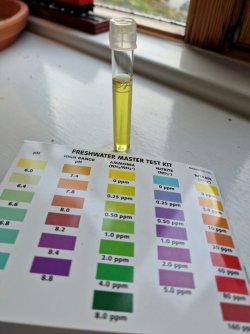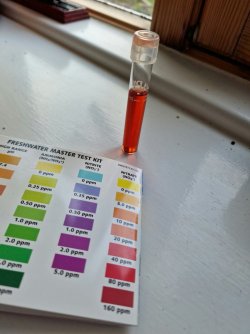Nitrates appear in a tank for a few reasons.
It's in tap water.
Something in the tank is making it.
Something containing nitrate is added to the tank.
The test is not done correctly.
In your case, we know your tap water is around 20 ppm so the extra has come from somewhere else.
You have only a few fish, and the plants in the tank should be taking up all the ammonia they make leaving none to be converted to nitrate. But have you had any reading above zero for ammonia and/or nitrite, which would indicate the plants are not removing all the ammonia?
Are you still using TNC Complete? That does contain nitrate. Are you adding anything else to the tank besides water conditioner and possibly plant fertiliser?
Finally the tester. Are you shaking bottle #2 like they say, both before adding the drops to the tube, then the tube after adding before starting to time the 5 mins? Not shaking is a common cause of error with the nitrate test.



